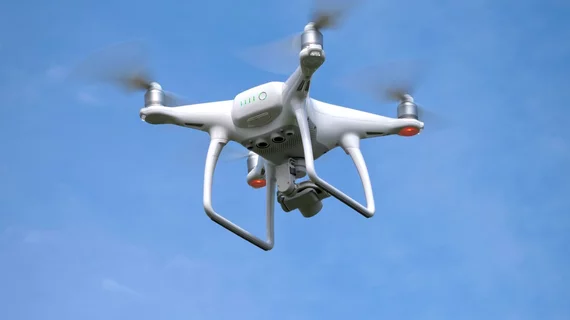Major health system delivering COVID supplies by drone
The U.S. Federal Aviation Administration has cleared North Carolina-based Novant Health to use unmanned aerial vehicles for transporting PPE and other medical supplies without human-to-human contact.
The four-state, 15-hospital system is tapping Zipline, a supplier of on-demand drone services, to get the goods in the hands of frontline healthcare workers during the COVID crisis.
In announcing the development, Novant says the drones will fly in Class-D controlled airspace, which is actively managed by the FAA, under a waiver the agency has granted.
North Carolina’s secretary of transportation, Eric Boyette, says the aim is to help ease the strain on medical supply chains in the area.
“We’re living through an unprecedented situation, and we’re going to need innovative solutions like this to get us through it,” Boyette adds.
Zipline’s CEO, Keller Rinaudo, says the project’s use of contactless drone logistics will offer other healthcare providers an operational blueprint to consider when mounting similar supply-chain efforts.
Novant Health has posted a 1-minute video demonstration of the service on YouTube.

